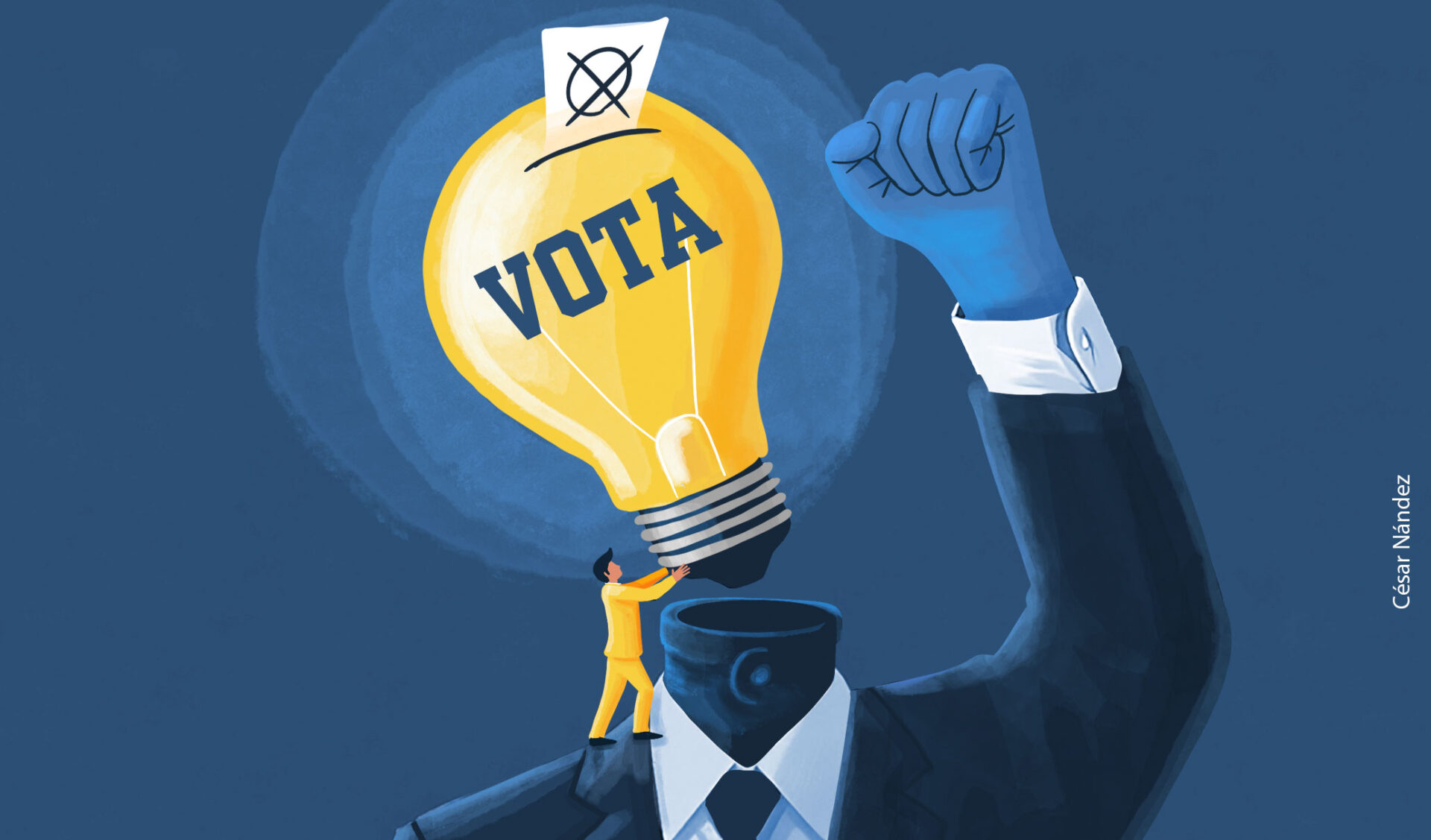The world of published opinion on politics, made up of essayists and personnel, to a greater or lesser extent specialized, tends to emphasize the most contentious, if not lurid or even catastrophic aspects of politics. Their praiseworthy critical zeal underlines the shortcomings, errors, imbalances, and even the frequent tricks that obscure its events. This task of denunciation, in principle necessary, contributes, however, to sometimes blur the political action. It also consolidates the generalized feeling that politics is dirty because it is a field where conflict and transaction at any price predominate with the consequent connections with the world of corruption and illegality. The known result is disaffection, lack of confidence in institutions and political professionals, as well as their increasingly high degree of undervaluation and contempt. In short, the impact on the deterioration of democracy is tangible. However, there are other sides of political activity that need to be observed in order to contribute to vindicate its revaluation.
In the last month, a sequence of diverse events can be considered to advocate the existence of a favorable arena of evident reconciliation with politics. In its work, politics has given positive signs, in Hanna Arendt’s terms, in favor of ensuring that coexistence among people can be possible, overcoming the prejudice that politics is “a fraudulent and deceitful string of petty interests and ideologies”.
If politics is understood as a realm in which individuals are primarily active and give human affairs a durability they would not otherwise have, then hope is by no means utopian. To some extent, there are events that have moved in this direction and that inescapably require enhancement. The following is a brief summary of a series of cases that have had little media coverage but whose component of dignifying politics is relevant.
Panama, in spite of its dramatic inequality, the existence of notable corruption issues and a systematic weakness in its representative institutions, is a country that is ranked between 4th and 5th place in the region by different democracy performance evaluators. Possibly, this is due to the democratic activism of its Electoral Tribunal, promoter as well as overseer of a periodic process of electoral reforms that seek a higher quality democracy.
This is reflected, for example, in the development of the figure of free nomination candidacies and also in a generous and efficient policy of public financing of the political process. The legislation foresees the possibility that this may be returned by the beneficiaries, in which case it would swell the national budget for science and technology.
Recently, the Vamos bench, a body made up of young assembly members through the aforementioned mechanism of free nomination and which constitutes the main parliamentary group in the country, renounced the public funding received of six million dollars because this amount would have a greater impact on the always precarious national science and technology system, particularly in the field of cancer treatment and prevention.
In Uruguay, political participation in the recent presidential and legislative elections was close to 90% of the electorate. It is true that voting is compulsory, but it is also compulsory in numerous Latin American countries without reaching anywhere near that level. This continued citizen attitude is an expression of unequivocal commitment to politics that translates into scenarios of alternation and vigorous play in the relations between the Executive and Legislative Branches.
On the other hand, the stability of its party system projected in three political forces is astonishing and unprecedented in Latin America, since two of them (the National Party and the Colorado Party) have been competing for 180 years and the third one (the Broad Front) since the 1960s. In addition to all this, the electorate rejected in two popular consultations a proposal that violated citizens’ rights in favor of the fight against crime and another one referring to a reform of the pension system that would seriously jeopardize its continuity. All of these issues have consistently raised the country to the first place in the rankings of democracy quality in the region.
The governments of Lula da Silva in Brazil and Gustavo Petro in Colombia, both of whom are clearly alienated on the left of the political arena in their countries, have firmly stated that they will not recognize the reelection of President Nicolás Maduro if his government does not publish the detailed records of the July 28 vote before January 10 when his current term ends. In the same way, the Brazilian government blocked Venezuela’s entry into the BRICS+ grouping. The significance of this stance of Venezuela’s two big neighbors regarding this autocratic regime that reinforces the principle of democratic election of political power is outstanding since its leadership is remarkable, in addition to having obvious immediate interests due to its border character.
The tired democracy that plagues Latin American countries has in Justice a tool by which to demonstrate that the rule of law can work by consolidating the separation of powers. This circumstance has had two significant evidences during the last month. In Brazil, the murder of Rio de Janeiro councilwoman Marielle Franco — seen by many as an attack on democracy, largely because of her humble origins and her tireless efforts to improve the living conditions of the popular sectors of Rio — and her driver, Anderson Gomes, in March 2018 has not gone unpunished. The Supreme Court has just sentenced the perpetrators, former policemen Ronnie Lessa and Elcio Queiroz, arrested last March, to 78 and 59 years in prison respectively. In a region where impunity is unfortunately often a dominant note, this action reinforces the rule of law.
Other evidence, in a different direction but also involving the judiciary, has recently taken place in Peru and Argentina, following other national cases. To the extent that corruption involves the abuse of power for personal gain, the fight against it is crucial for the protection of democracy.
For this reason, the Peruvian political system, which suffers from serious problems in relation to the decomposition of its party system and the inefficiency of its Executive Branch, plagued with the lowest level of popular support in Latin America, has seen how Justice has played an extraordinary role in implicating four former presidents (Alan García, Ollanta Humala, Pedro Pablo Kuczynski and Alejandro Toledo) in acts of corruption. The latter has just been sentenced to 20 years in prison for having received some 35 million dollars in bribes from the Brazilian construction company Odebrecht’s “B account”.
In Argentina, on the other hand, the Federal Chamber of Criminal Cassation has confirmed the sentence of six years in prison and “perpetual disqualification from holding public office” against former president Cristina Fernández de Kirchner for a corruption case related to irregularities in road works. It is foreseeable that Fernández will file an appeal before the Supreme Court, a process that could take several months or even years.
This scenario ties in with other notorious cases such as those of former presidents Ricardo Martinelli of Panama also sentenced to 10 years in 2023 and today taking refuge in the Nicaraguan embassy in his country; Honduran Juan Orlando Hernández, extradited from his country and sentenced in the United States in 2024 to 45 years in prison for drug trafficking offenses; Tony Saca, from El Salvador, was sentenced to ten years in prison in 2028 and Mauricio Funes, also from El Salvador, asylum in Nicaragua, but sentenced in El Salvador to 14 years in prison in 2023.
*Translated by Janaína Ruviaro da Silva from the original in Spanish.











